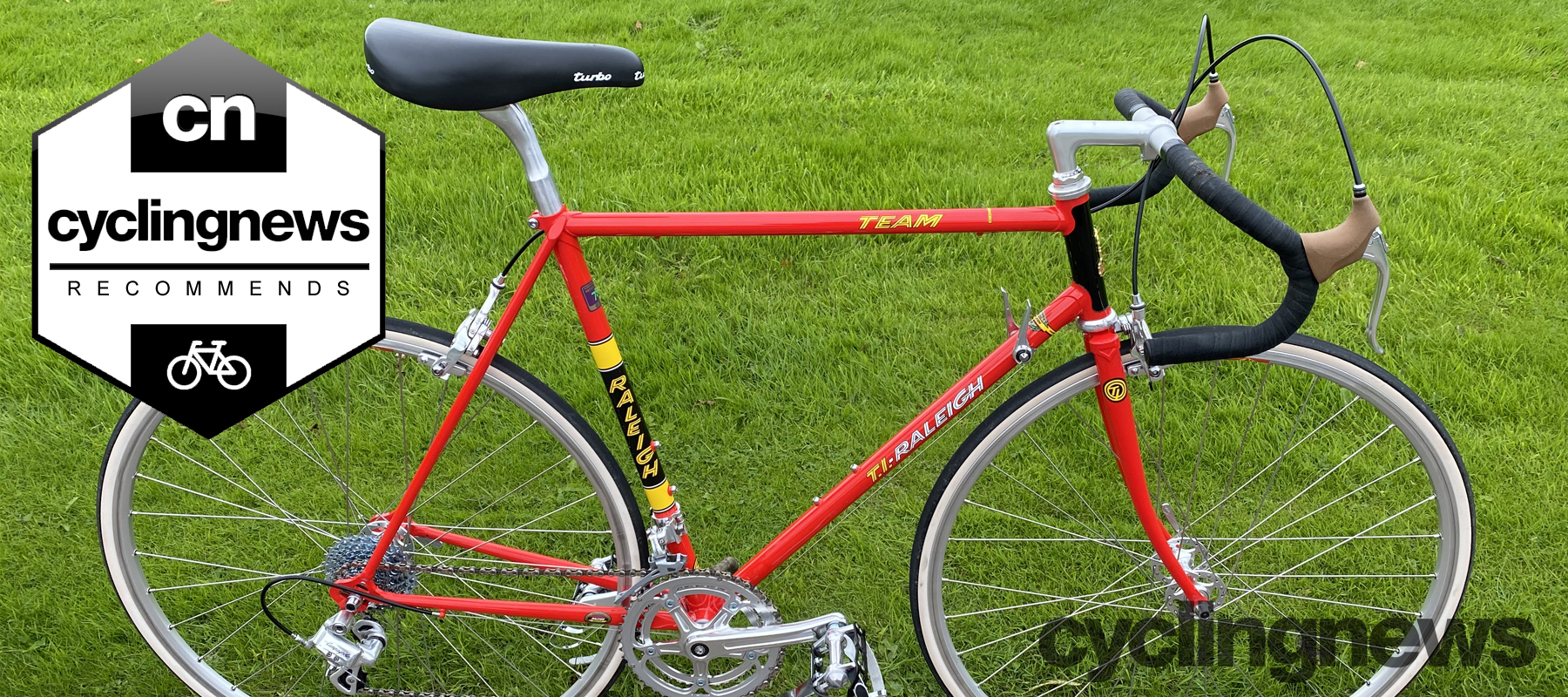Cyclingnews Verdict
A safe and thoroughly enjoyable ‘Sunday best’ ride whether you remember the original or not
Pros
- +
Iconic aesthetics
- +
Steel glide ride
- +
Super surefooted handling
- +
Reasonable ratios
- +
Powerful brakes
- +
Unique retro-styled rims and mech
- +
Limited-edition investment
Cons
- -
Down tube shifters are an acquired art
- -
Toe Clips seem suicidal these days
- -
Cloth tape and skinny hoods
- -
Near solid stem and seat post
- -
Basic dropouts
You can trust Cyclingnews
When I was nine years old the Ti-Raleigh team were the dominant Classics squad and took Grand Tour stage wins by the armload every year. 1980 was by far their most successful Tour though. Dutch legend Joop Zoetemelk took the win in his first year on the team by nearly seven minutes after Bernard Hinault retired and, between them, the squad scooped over half the stages of the race. The Team 753 bike they were riding became even more of an icon in the process so Raleigh has dug deep to recreate 250 limited-edition bikes and frames for the 40th anniversary. The result is a really sweet riding Sunday best bike in its own right.
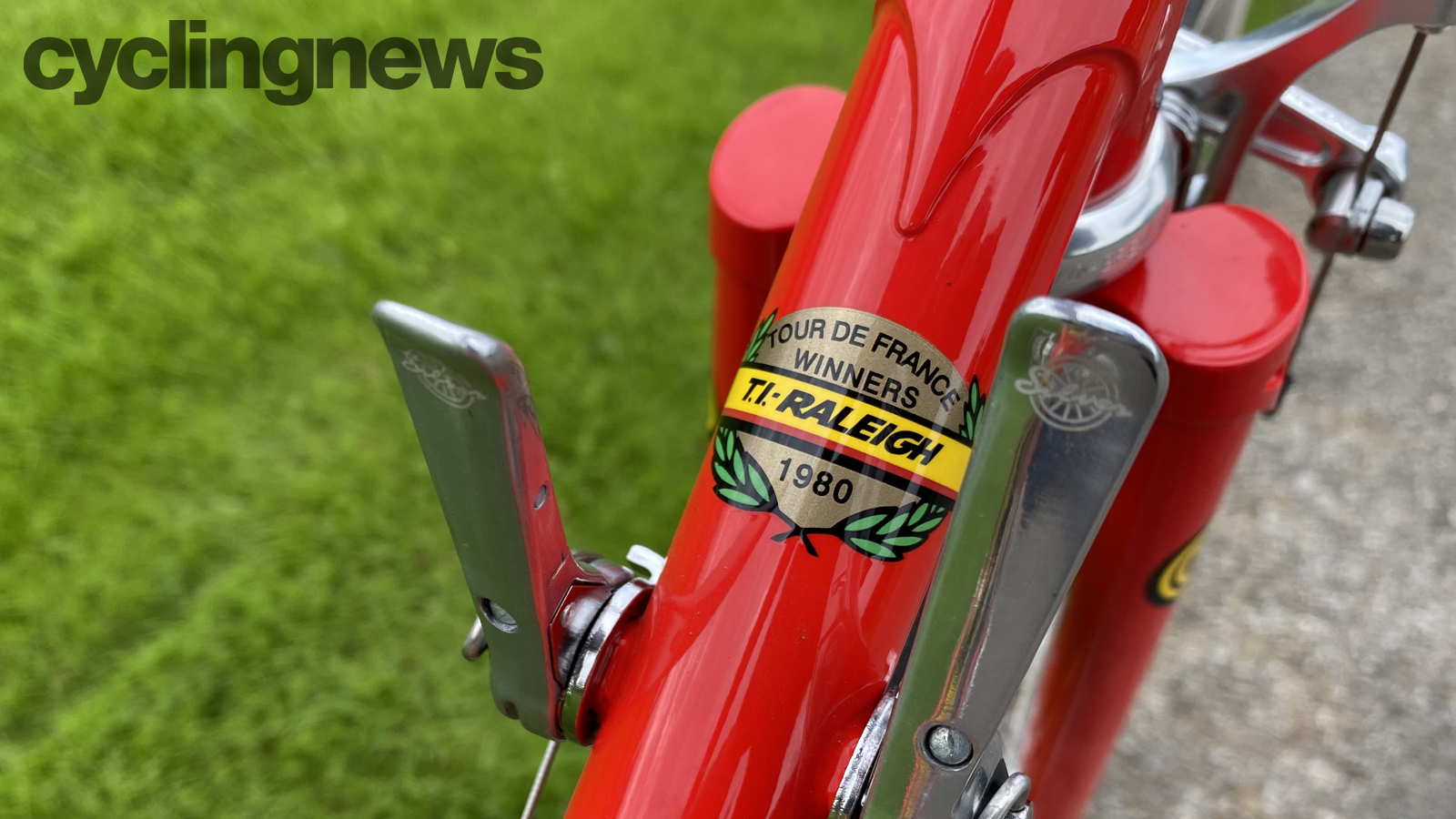
Design and geometry
The biggest issue with remaking the Team 753 is that Reynolds doesn’t make the original heat-treated steel tubeset anymore. The Nottingham bike brand and Birmingham tube worked together to recreate period-correct plumbing which was then silver brazed into Allotec lugs by Maxway in Taiwan - one of the few remaining 753-certified builders. It’s not a perfect replica as modern safety standards mean the laser-cut, screw adjuster equipped dropouts are chunkier than the originals, the fork crown is flat rather than sloped and the lug design is somewhere between the ornate Prugnat and plainer Cinelli junction pieces of the originals. You still get signature-capped seat stays and drilled tines down the inside of the slender curved 753 fork legs though. It uses QR wheels with 130mm rear spacing, too.
Geometry is based on an aggregate of the many custom frames Joop rode in various races. So while the 1980 Tour was won on a 56cm bike with a 73.5-degree head tube and 74.2-degree seat tube with a 556mm top tube our sample is 73/74-degree with a 560mm top tube.
Components and build
Raleigh has included some nice component collaborations, too. The Veloce gears are custom pieces with Campagnolo parallelogram labelling and the Open Pro rims have the classic Mavic logo. The bike gets a Campagnolo Record one inch threaded headset with Cinelli quill stem and Cinelli Giro D’Italia bars wrapped in masochistic but appropriate Velox cloth tape. The premium quality Campagnolo Record 1-inch threaded headset is a steering smoothness guarantee though.
While you’re getting a 13-29, 10-speed block and 50/39T rings, not a period-correct six-speed with 52/42T, you’re still shifting with non-indexed Dia Compe downtube shifters. The chainset is a period replica too as a modern Campag unit would have ruined the 80’s aesthetic. You get MKS Sylvan ‘quill’ pedals with chrome toe clips and leather straps. The external cable Dia Compe brake levers with super skinny gum rubber hoods operate impressively powerful Campagnolo Centaur dual-pivot brakes. For modern practicality, the Challenge tyres are ‘open tub’ clinchers rather than real glue on tubulars, but they are handmade with a core spun 320tpi cotton casing and cream sidewalls. Raleigh has even managed to find a sculpted aero seat pin to put under the replica 1980 Selle Italia saddle.
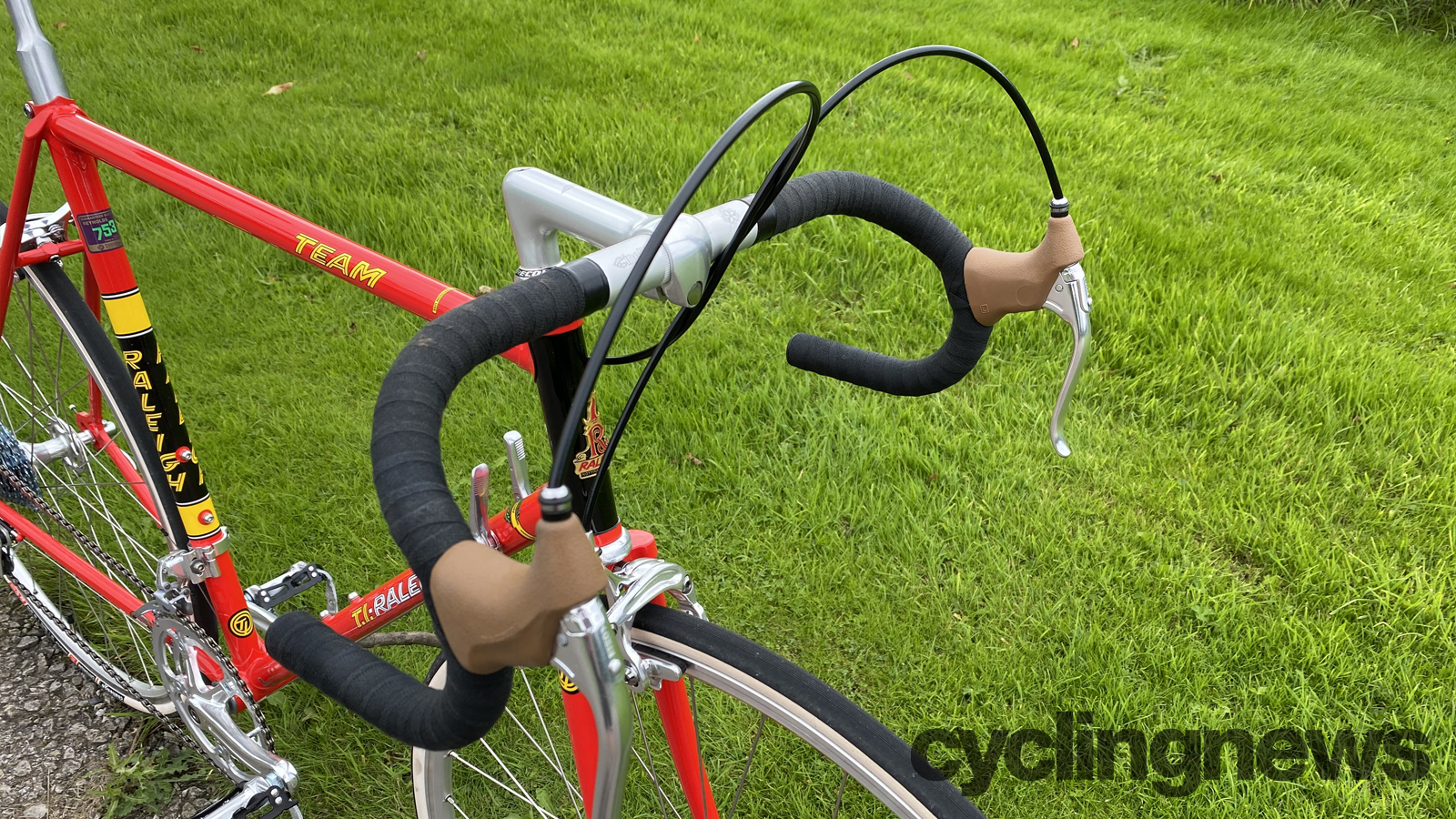
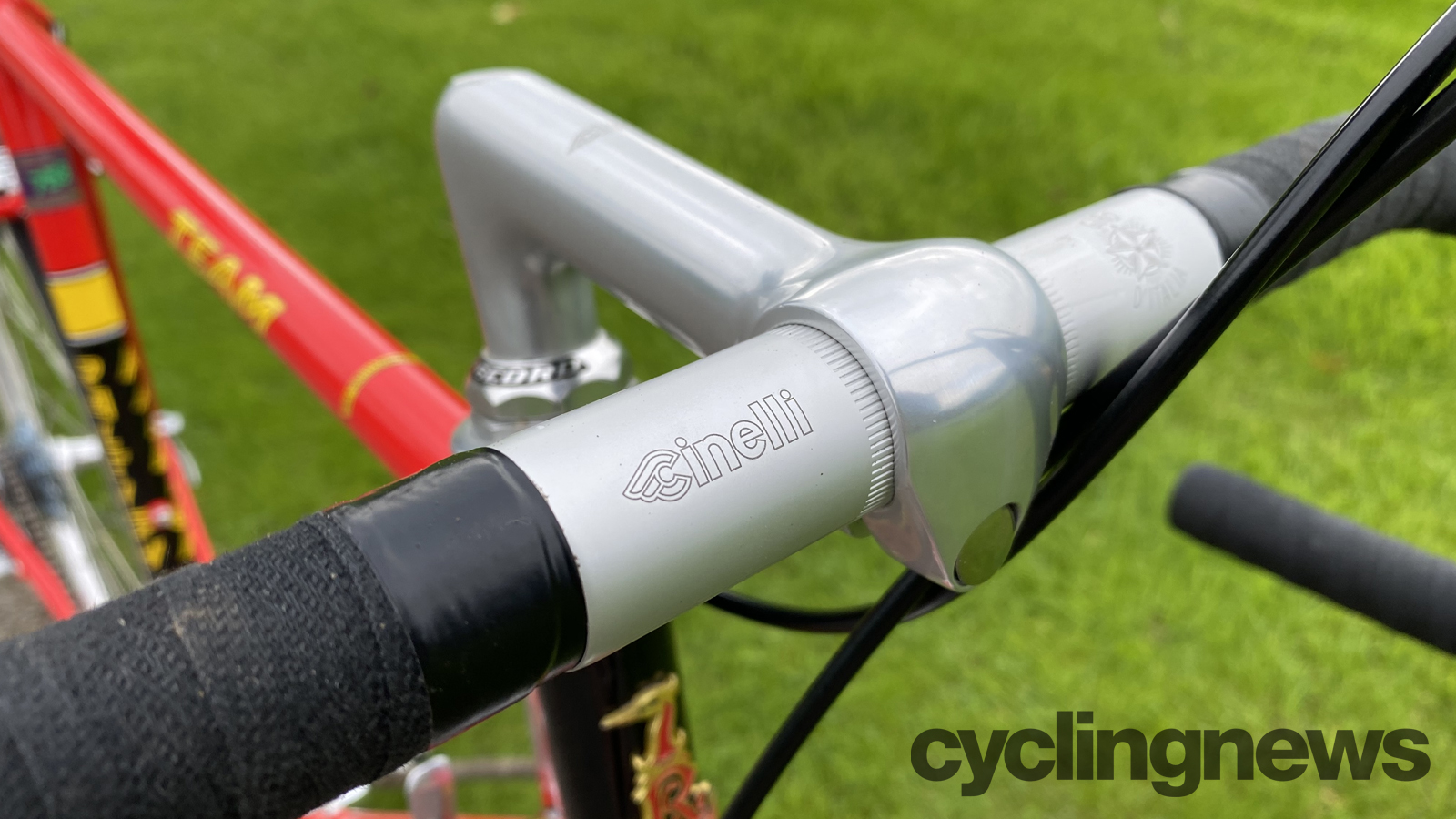
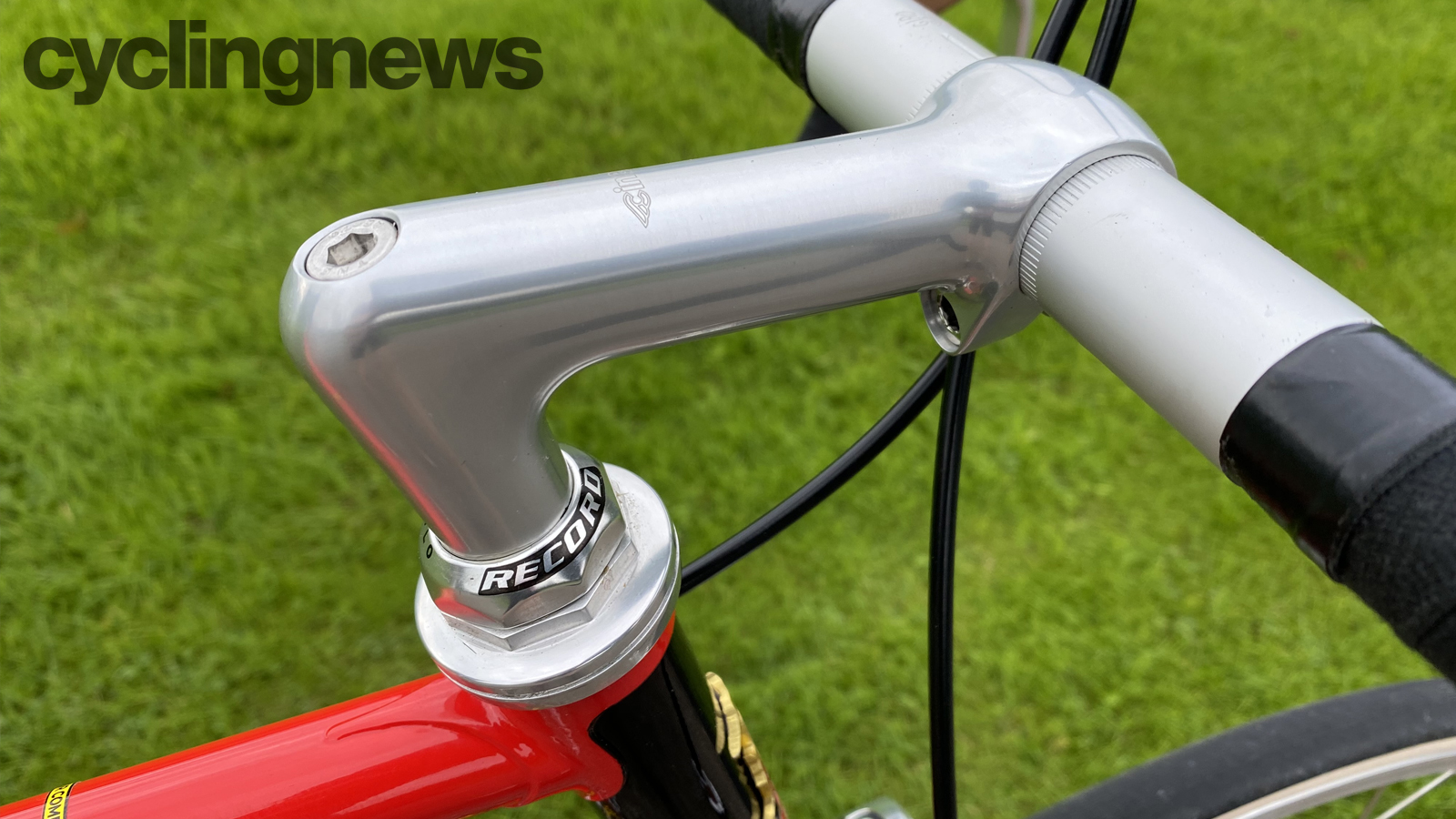
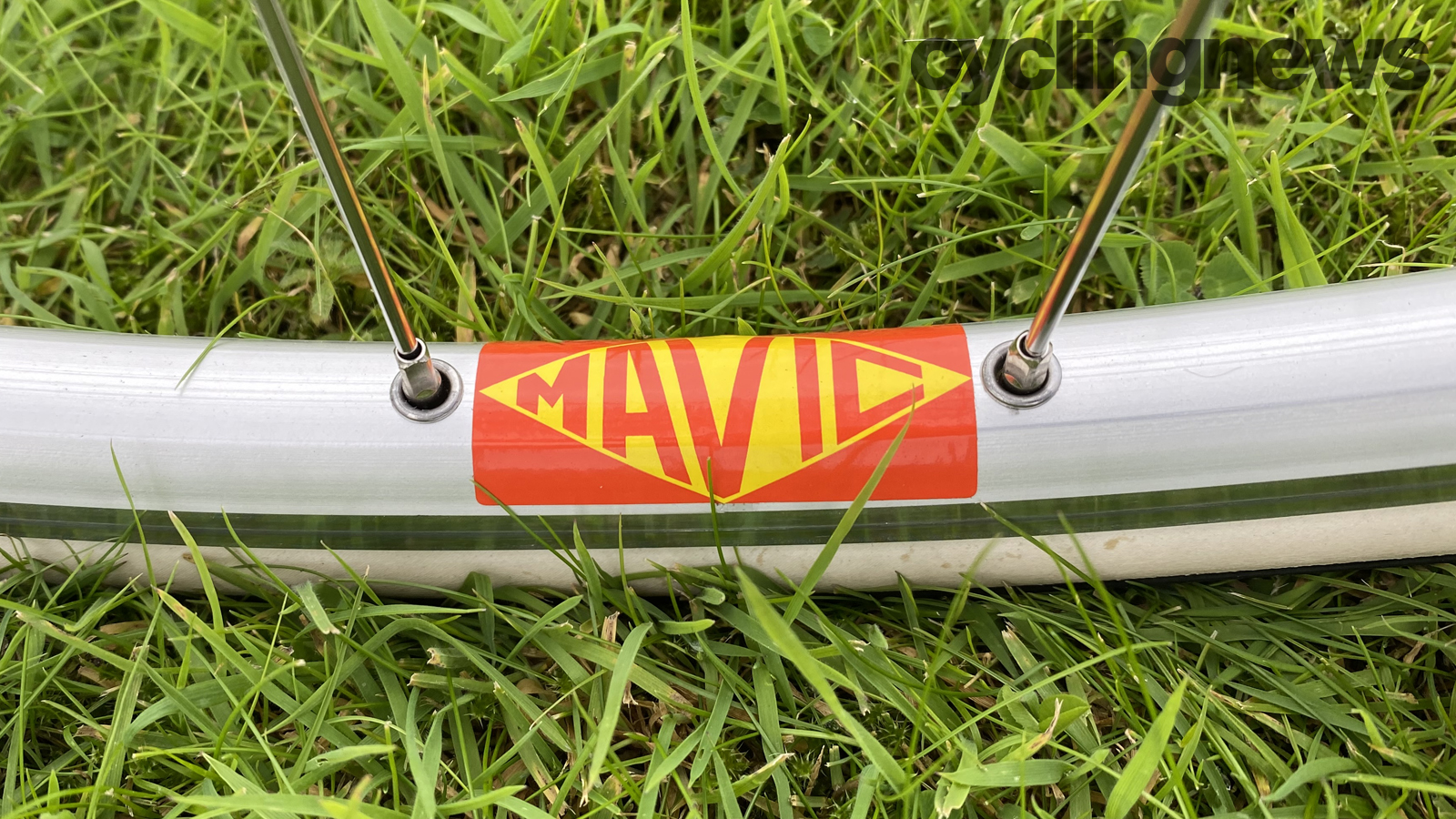
Ride, handling and performance
The seat post also neatly sums up the difficulties of ‘testing’ this bike. In one way it’s brilliant because it probably took Raleigh a really long time to find a retro-looking post for the bike. According to Raleigh SBDU historian Neil McGowran’s blog, Joop’s bike would actually have had a fluted Campagnolo Super Record post though and he used a prototype Brooks saddle. From a modern performance point of view though its thick wall alloy construction weighs a ton, has none of the shock-absorbing effects of a modern carbon post and even height adjustment on the short shaft is limited.
The Cinelli quill stem is another beautifully evocative component, but utterly obsolete for good reason and the steel fork it wedges into is twice the weight of a modern carbon fork. The skinny hoods and meagre hard cloth bar wrap are a frankly miserable, masochistic place to put your hands compared to a modern cockpit with ergonomic hoods and EVA cushioned tape. The frustration of trying to get your foot into a toe clipped pedal is nothing compared to the fear when you realise you need to reach down and loosen the strap before you can stop. The idea of taking your hand off the bar to try and blindly fumble for a non-indexed gear perilously close to the front wheel will sound like suicide to anyone who started riding in the last 30 years.
The joy that finding I could still toe tap and flip a pedal almost as well as when I last did it sometime in the early 90s far outweighed the convenience of clipless pedals though. The brushing metal purr of a chain guided perfectly into place via the Dia Compe downtube levers is as satisfying to a retro rider as the sound of a needle touching vinyl or the wind on of a film camera. The extra anticipation of what the road does next or potential attacks from your riding mates and judging the ideal climax cadence for either situation is a whole other art form too.
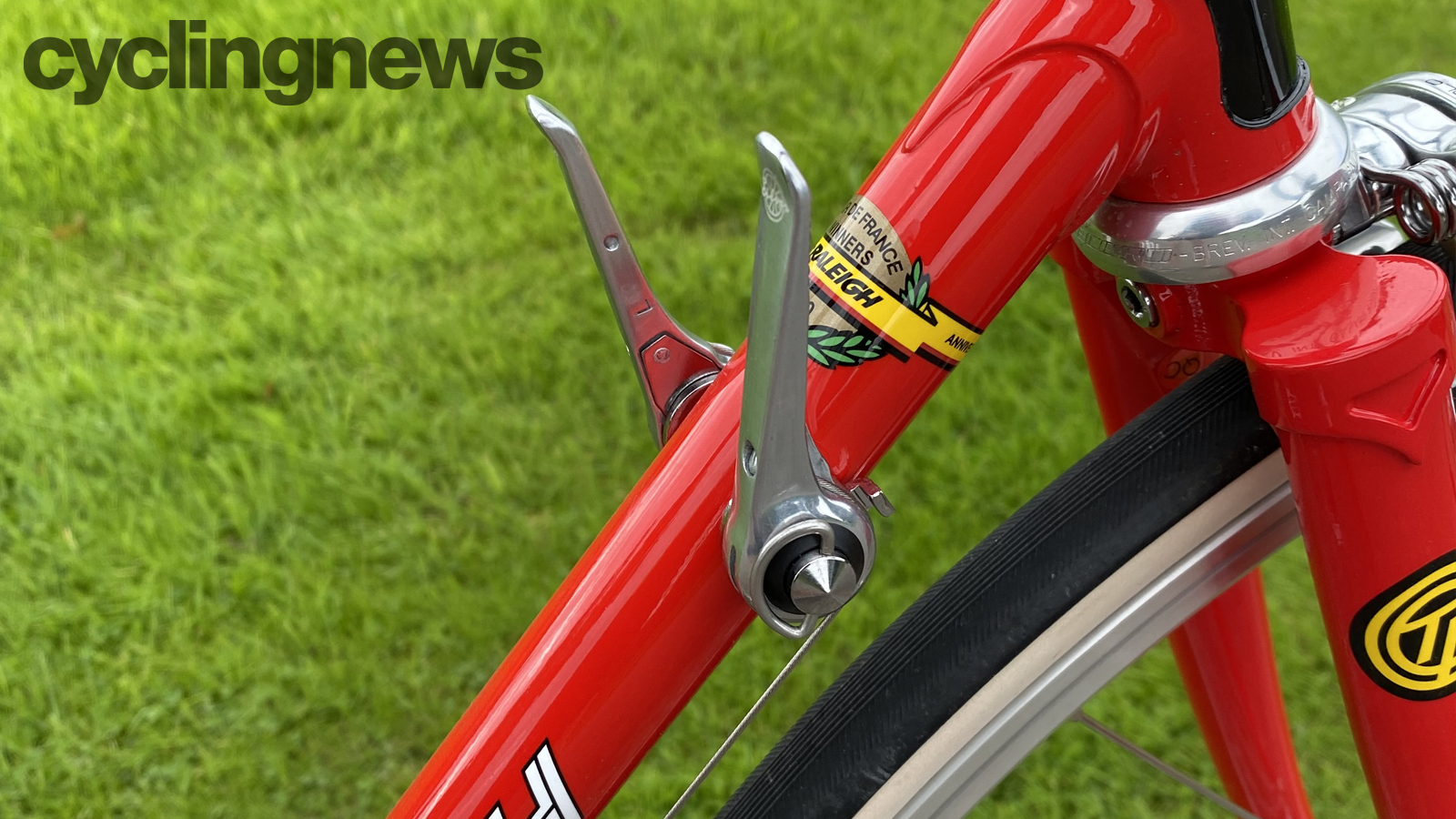
There’s no need to make rose-tinted excuses for the ride quality either. Despite the almost solid seat post and stem plus sturdy 32-spoke wheels and steel fork, 10kg isn’t much over the odds for a modern steel race bike with mid-level components and a carbon fork. While it’s certainly not explosive under power, it rolls a gear with real purpose in or out of the saddle and has a lovely surge of speed sustain if you lift off the pedal pressure slightly after accelerating. Even cloth tape, cramp-inducing lever hoods and that ingot of seat post can’t ruin a clearly very cultured and vibration quelling ride from the breathtakingly skinny tube set. The rougher the surface, the more the Team 753 floated and flowed to hold speed, further confirming it’s retro rouleur vibe. With no flat tubes or deep wheels to catch the wind and different, toe overlap dodging fork offsets for each frame size it’s extremely stable and vice free on gusty days. The overall weight plus compliance in the frame and the fork means it feels absolutely rock solid stable on twisty descents despite what looks like relatively steep and snatchy angles on paper. Fitting latex tubes to the Challenge tyres or even upsizing to a 25mm is only going to make it feel better too.
Verdict
Raleigh’s bike isn’t a perfect replica and it can’t compete with the lower weight and all in one shift and brake convenience of a modern steel bike with a carbon fork. You could find a bike with comparable smooth steel performance cheaper too. Considering the unique tube set and components and limited edition numbers available the price isn’t unreasonable though and it’ll probably gain worth as an investment in a way no other modern bike will. Raleigh has also done a really great job of including enough old school shifting and pedal awkwardness while still making it a safe and thoroughly enjoyable ‘Sunday best’ ride whether you remember the original or not.
Tech specs
- RRP: £2500 / €2900 (frame and fork: £1500 / €1750)
- Frame: Ti-Raleigh Team 753 40th anniversary replica custom Reynolds 753 heat-treated cro mo steel
- Groupset: Campagnolo Veloce 20 speed gearing with Dia Compe downtube shifters
- Crankset: Retro style 50/39T chainset
- Wheels: Mavic Open Pro C retro label rims with 32 spokes and custom Sheriff Star large flange QR hubs
- Tyres: Challenge Criterium 700x23mm clincher
- Brakes: Campagnolo Centaur dual-pivot brakes with Dia Compe Classic levers
- Bar/stem: Cinelli 420x25.4mm bar and Cinelli 1A 100mm quill stem
- Seatpost: Classic aero post
- Saddle: Selle Italia Turbo 1980 saddle
